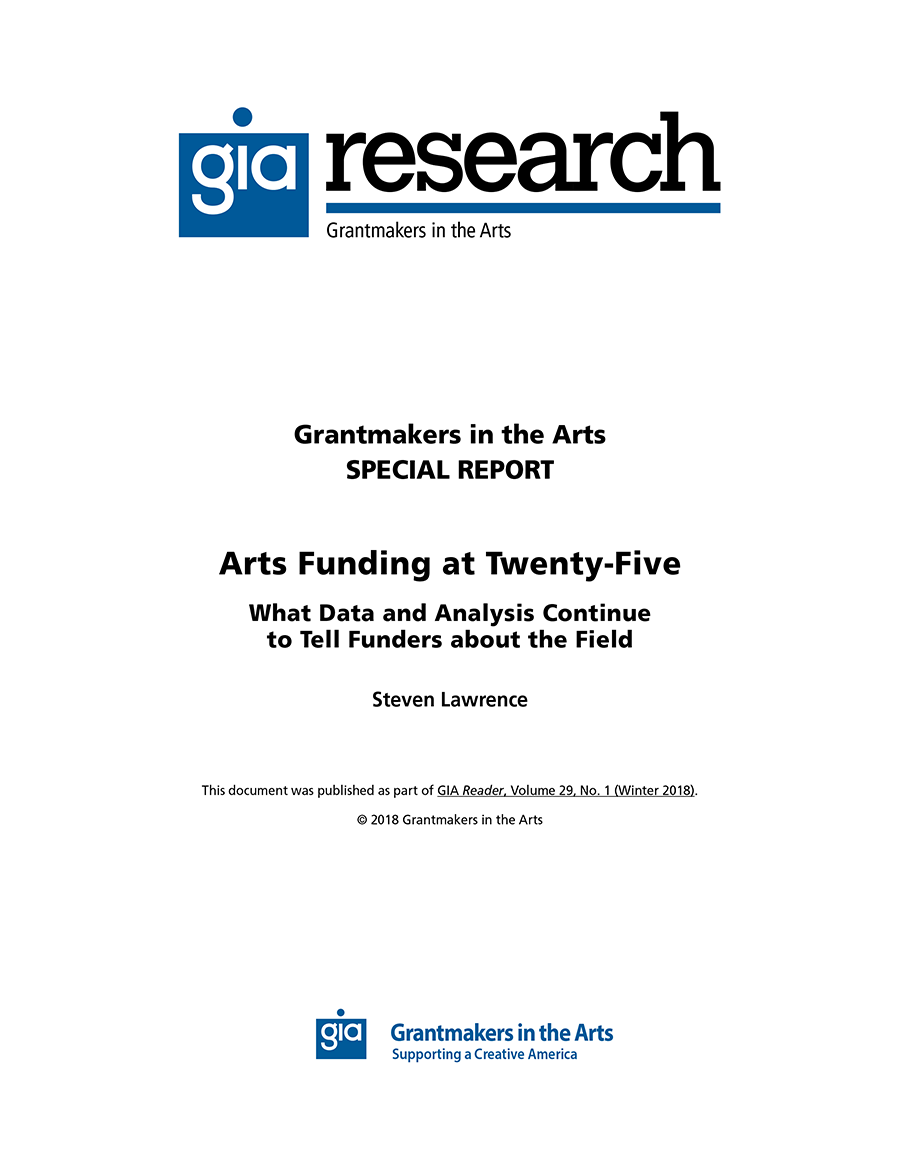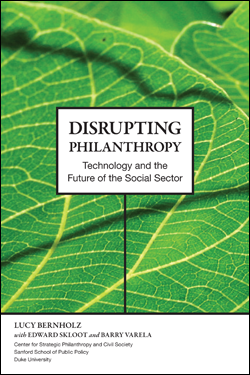General Operating Support
Ford, Hewlett, MacArthur, Open Society, and Packard, five of America’s wealthiest foundations, pledge "to do more to help grantees pay for rent, decent wages, technology, and other overhead," The Chronicle of Philanthropy reported.
Read More...Download:
![]() Arts Funding at Twenty-Five (318Kb)
Arts Funding at Twenty-Five (318Kb)
Introduction
The easy convenience of typing a few key words into a search box and promptly being immersed in data can make one forget that this capability has existed for a remarkably short period of time. Just twenty-five years ago — a point in time well within the recollection of most members of the arts and culture sector — Stanley N. Katz, then president of the American Council of Learned Societies, observed, “the serious study of arts philanthropy is less than a generation old, and we are just beginning the sorts of data collection and analysis…we need to make sound judgments about the field.”1
Read More...The mission of the James F. and Marion L. Miller Foundation, established in 2002, is to enhance the quality of life of Oregonians through support of the arts and education. In the midst of the 2009 recession, the foundation began a six-year grantmaking initiative that provided general operating support to Portland’s five large arts organizations. The foundation made important shifts in its grantmaking strategy to help shore up the financial strength and stability of the Portland Opera, Oregon Ballet Theatre, Portland Center Stage, Portland Art Museum, and the Oregon Symphony.
Read More...Download:
![]() Building a Resilient Sector (9.2Mb)
Building a Resilient Sector (9.2Mb)
May 2010, 49 pages. Center for Strategic Philanthropy and Civil Society, Sanford School of Public Policy, Duke University, Box 90524, Durham, NC, 27708, 919-613-7432 www.sanford.duke.edu
Read More...Published in Stanford Social Innovation Review, Stanford Graduate School of Business, Summer 2009, 7pg.
Download:
![]() The Equity Capital Gap (308Kb)
The Equity Capital Gap (308Kb)
Published in The Chronicle of Philanthropy, Volume XXI, No. 6, January 15, 2009, 2pg.
Download:
Read More...In the aftermath of the economic tsunami, many non-profit organisations will be called upon to do more with less. As in past recessions, they will work to protect a mounting roster of victims from hunger, homelessness, ill-health and physical abuse.
Board members, donors and managers in the social sector will need to summon their courage and embrace an “equity ethic” to ensure that they and the organisations they support will be able to stay the course for the people who need them. To do so, they will need to tame one of their strongest impulses: to do more.
Read More...The current economic climate has forced many nonprofit arts organizations to confront underlying issues. Tensions mount, dollars are scarce, and unresolved weaknesses or fissures often grow. We have seen heartening examples of artists, donors, audiences, and funders rallying to support the art and organizations that they love. In some cases, streamlined, more focused organizations are forging ahead with renewed determination. But in other cases, the economic downturn may herald the time to close the doors.
Read More...

